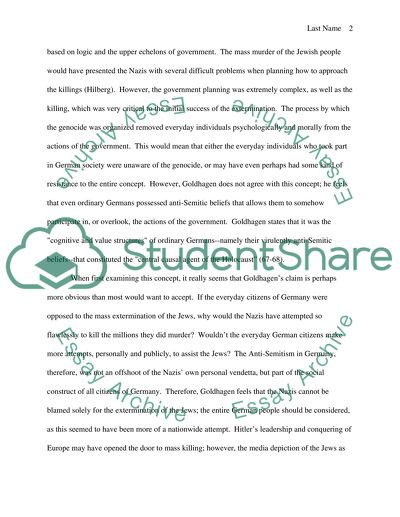Cite this document
(Analysis of Daniel Goldhagens Book Hitler's Willing Executioners: Term Paper, n.d.)
Analysis of Daniel Goldhagens Book Hitler's Willing Executioners: Term Paper. Retrieved from https://studentshare.org/history/1533225-history-bachelor-essay
Analysis of Daniel Goldhagens Book Hitler's Willing Executioners: Term Paper. Retrieved from https://studentshare.org/history/1533225-history-bachelor-essay
(Analysis of Daniel Goldhagens Book Hitler'S Willing Executioners: Term Paper)
Analysis of Daniel Goldhagens Book Hitler'S Willing Executioners: Term Paper. https://studentshare.org/history/1533225-history-bachelor-essay.
Analysis of Daniel Goldhagens Book Hitler'S Willing Executioners: Term Paper. https://studentshare.org/history/1533225-history-bachelor-essay.
“Analysis of Daniel Goldhagens Book Hitler'S Willing Executioners: Term Paper”, n.d. https://studentshare.org/history/1533225-history-bachelor-essay.


